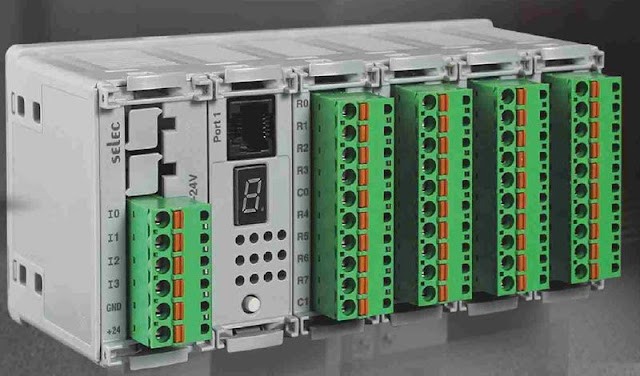In An Industrial Facility, A Programmable Logic Controller Controls Equipment
 |
| Programmable Logic Controller |
Programmable Logic
Controllers, or PLCs
for short, are computer-based control systems used to automate industrial
processes. These systems are designed to control a wide variety of
manufacturing processes, including assembly lines, robotics, and machinery.
They are used in almost every industry and are an essential component of modern
manufacturing.
PLCs were originally designed to replace electromechanical
relays, timers, and counters, which were widely used in the past for process
control. These older systems were limited in their functionality and
reliability and were expensive to maintain. PLCs, on the other hand, are
programmable, flexible, and reliable, making them the preferred choice for
process control in modern manufacturing.
Programmable
Logic Controller consist of three main components: the
processor, the input/output (I/O) modules, and the programming software. The
processor is the heart of the PLC, responsible for executing the control
program stored in memory. The I/O modules provide the interface between the PLC
and the external world, allowing it to receive signals from sensors and send
control signals to actuators. The programming software is used to develop and
edit the control program.
PLCs can be programmed using a variety of programming
languages, including ladder logic, function block diagram, structured text, and
sequential function charts. Ladder logic is the most commonly used language and
is based on the familiar graphical representation of electrical circuits. Function
block diagram (FBD) is another popular language that uses graphical blocks to
represent logic functions.
Programmable Logic
Controller are
highly reliable and can operate continuously for many years without requiring
maintenance. They are also designed to be highly flexible and can be easily
reprogrammed to adapt to changes in the manufacturing process. This makes them
ideal for use in environments where the production process is constantly
changing, such as in a job shop.
PLCs are also highly modular, allowing them to be easily
expanded or reconfigured as needed. This makes them ideal for use in
large-scale manufacturing processes where multiple PLCs are used to control
different aspects of the production process.



Comments
Post a Comment